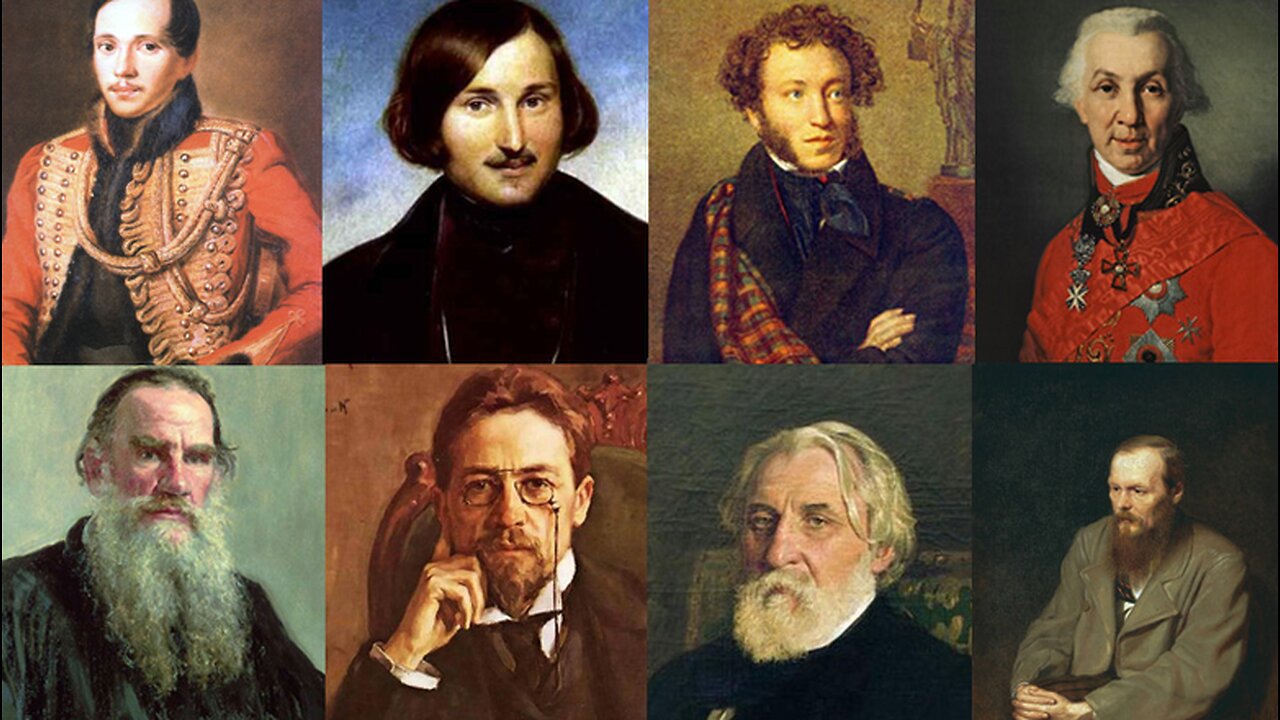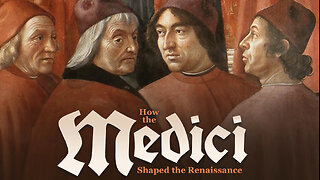Premium Only Content

Classics of Russian Literature | M. Gorky (Aleksei M. Peshkov), 1868–1936 (Lecture 25)
Lecture 25: Gorky’s real name means “pawn”; his pseudonym means “bitter.” In those two words, we have the essence of this remarkable personality, who had real talent, which he sometimes, but not always, revealed in writing that shook Russia and the world. For several years in the early 20th century, he even eclipsed the fame of Tolstoy. Destined to live on the chronological edge between two political and social systems, which were separated by two revolutions and a bloody civil war, he became a symbol of that change, ending his career as a kind of Soviet icon. Of course, he was no saint, and wide propagandistic worship only served to conceal the reality of his life and work. It also meant that he was extravagantly praised by some and equally extravagantly reviled by others. His appearance in New York City in 1906 resulted in a scandal that drove away Mark Twain, who had been the head of a committee formed to welcome Gorky to the land of the free and the home of the brave. Let’s examine the reality, briefly, but as objectively as we can. I believe we will find both literary art and human decency well worth our effort and attention.
Suggested Reading:
Maxim Gorky, Autobiography of Maxim Gorky, translated by Isidor Schneider.
Edward Wasiolek, ed., “Gorky’s Memoirs of Lev Tolstoy,” in Critical Essays on Tolstoy.
Irwin Weil, M. Gorky: His Literary Development and Influence on Soviet Intellectual Life.
-
 30:08
30:08
The Great Courses
15 days agoHow the Medici Shaped the Renaissance | The Godfather: Cosimo de' Medici (Lecture 3)
210 -
 13:22
13:22
Stephen Gardner
2 hours ago🔥You'll NEVER Believe what Trump wants NOW!!
14.2K33 -
 54:56
54:56
Digital Social Hour
1 day ago $1.04 earnedDOGE, Deep State, Drones & Charlie Kirk | Donald Trump Jr.
5.07K -
 DVR
DVR
The Trish Regan Show
3 hours agoTrump‘s FCC Targets Disney CEO Bob Iger Over ABC News Alleged Misconduct
15.7K13 -
 1:48:19
1:48:19
The Quartering
4 hours agoElon Calls White People Dumb, Vivek Calls American's Lazy & Why Modern Christmas Movies Suck!
85.3K34 -
 2:08:42
2:08:42
The Dilley Show
5 hours ago $25.74 earnedH1B Visa Debate, Culture and More! w/Author Brenden Dilley 12/26/2024
74.8K18 -
 4:55:59
4:55:59
LumpyPotatoX2
7 hours agoThirsty Thursday on BOX Day - #RumbleGaming
63.9K4 -
 1:04:52
1:04:52
Geeks + Gamers
6 hours agoDisney RATIO'D on Christmas Day | Mufasa Embarrassed By Sonic 3
50.4K4 -
 8:27:46
8:27:46
Sm0k3m
10 hours agoPlaying games on Rumble
30.6K2 -
 10:37
10:37
Russell Brand
2 days agoHow is this even allowed?
178K838